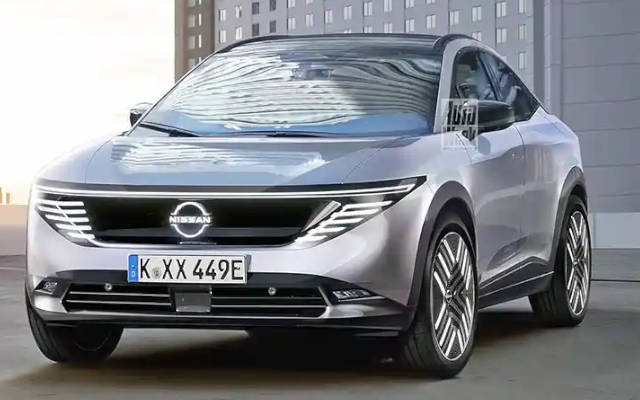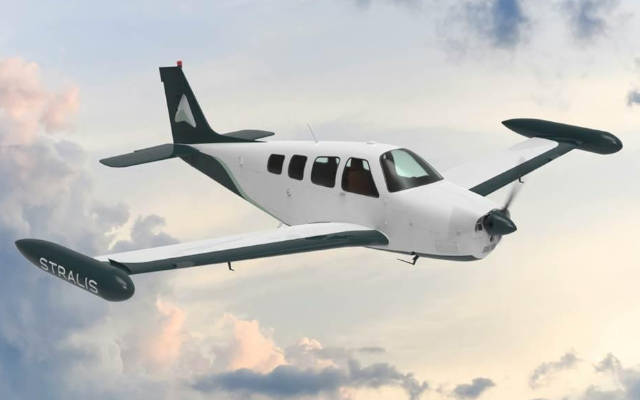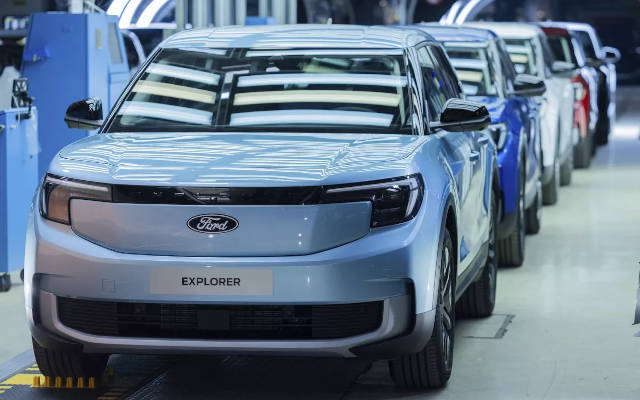 EDITOR'S PICK
EDITOR'S PICK
Global Electric Car Market to Hit $1,982 Trillion by 2032
26 Jun 2025 | Synopsis
 "The global electric car market is projected to experience robust growth over the forecast period, fueled by government regulations and incentives promoting electric vehicle adoption, advancements in charging infrastructure, and increasing environmental awareness.
"The global electric car market is projected to experience robust growth over the forecast period, fueled by government regulations and incentives promoting electric vehicle adoption, advancements in charging infrastructure, and increasing environmental awareness."According to Coherent Market Insights (CMI), the global electric car market size is expected to grow more than 4.6 times...Based on range, 150-300 miles segment will likely hold a prominent share of 57.7% in 2025."
Hydrogen Beech Bonanzas ?
26 Jun 2025 | Synopsis
 Stralis Aircraft, an Australian startup founded in 2021, has set its sights on decarbonizing the aviation industry through the development of hydrogen-electric propulsion (HEP) systems. The company claims that HEP systems have the potential to fly 10 times farther than battery-electric alternatives while operating at 50% lower costs than fossil fuel-powered aircraft."
Stralis Aircraft, an Australian startup founded in 2021, has set its sights on decarbonizing the aviation industry through the development of hydrogen-electric propulsion (HEP) systems. The company claims that HEP systems have the potential to fly 10 times farther than battery-electric alternatives while operating at 50% lower costs than fossil fuel-powered aircraft."Record Global EV Growth: Key Takeaways from Recent Outlooks
26 Jun 2025 | Synopsis
 Global EV adoption is expanding, with emerging economies embracing electrification. As the EV market grows, affordable charging options and infrastructure become increasingly essential. Government policies play a crucial role in encouraging EV adoption and supporting the transition to electric transportation. Automakers are adapting to these trends by shifting their focus towards EVs to meet changing consumer demands and regulatory requirements.
Global EV adoption is expanding, with emerging economies embracing electrification. As the EV market grows, affordable charging options and infrastructure become increasingly essential. Government policies play a crucial role in encouraging EV adoption and supporting the transition to electric transportation. Automakers are adapting to these trends by shifting their focus towards EVs to meet changing consumer demands and regulatory requirements. Ethiopia Updates ICE Vehicle Import Ban To Include Imports of SKD & CKD Kits
23 Jun 2025 | Synopsis
 "...ban was not some futuristic target for 2030 or 2035. It was an immediate ban on the import of ICE cars. Ethiopia's motivation? A high fossil fuel import bill of over US$5 billion a year...Energy security and self-sufficiency were other major drivers.
"...ban was not some futuristic target for 2030 or 2035. It was an immediate ban on the import of ICE cars. Ethiopia's motivation? A high fossil fuel import bill of over US$5 billion a year...Energy security and self-sufficiency were other major drivers."...the government feels there is no more need to continue to support the local assembly of ICE vehicles. Several reports state that there are now tens of thousands of electric cars in Ethiopia."
World's Biggest Hydrogen Taxi Operator Goes All Electric, Blames High Costs
23 Jun 2025 | Synopsis
 Paris-based Hype "was the official taxi operator for last year's Paris Olympics...announced, with great fanfare, a deal with mining giant Anglo American for a major expansion of hits hydrogen fuel cell taxis, which included Toyota Mirai and Hyundai Nexo vehicle...Hype had blamed high hydrogen costs on a 'form of oligopoly' by incumbent hydrogen producers and distributors TotalEnergies and Air Liquide."
Paris-based Hype "was the official taxi operator for last year's Paris Olympics...announced, with great fanfare, a deal with mining giant Anglo American for a major expansion of hits hydrogen fuel cell taxis, which included Toyota Mirai and Hyundai Nexo vehicle...Hype had blamed high hydrogen costs on a 'form of oligopoly' by incumbent hydrogen producers and distributors TotalEnergies and Air Liquide."
 Si Exclusive
Si Exclusive
Hydrogen's Flight Path: Fuel Cells, Turbines, and the Economics of Clean Aviation
10 Oct 2025 |  Aviation is shifting from Jet A to four fuel systems: electricity, hydrogen (fuel cell and combustion), SAF, and petroleum. Fuel cells suit short-haul aircraft; hydrogen combustion may power long-range jets. SAF bridges legacy fleets. Hydrogen costs - $5-$7/kg today, possibly $2/kg by 2040 - impact ticket prices and infrastructure decisions. Airport authorities, airlines, and governments will share deployment costs. Each fuel has distinct environmental pros and cons shaping aviation's net-zero future.
Aviation is shifting from Jet A to four fuel systems: electricity, hydrogen (fuel cell and combustion), SAF, and petroleum. Fuel cells suit short-haul aircraft; hydrogen combustion may power long-range jets. SAF bridges legacy fleets. Hydrogen costs - $5-$7/kg today, possibly $2/kg by 2040 - impact ticket prices and infrastructure decisions. Airport authorities, airlines, and governments will share deployment costs. Each fuel has distinct environmental pros and cons shaping aviation's net-zero future.
 11 Oct 2025 09:25:32 UTC |
RECENT PODCASTS
BYD Soars - Cheaper Tesla Models - The Bolt is Back - Rivian
SEARCH RSSTREAM
 48 New Postings In Past 24 Hours
48 New Postings In Past 24 Hours
Category:mobility
Region:Europe
Date:10 Oct 2025
Category:energy
Region:Global
Date:10 Oct 2025
Category:mobility
Region:SoAmerica
Date:10 Oct 2025
Category:energy
Region:NoAmerica
Date:10 Oct 2025
Category:mobility
Region:NoAmerica
Date:10 Oct 2025
Category:finance
Region:AsiaPacific
Date:10 Oct 2025
Category:policy
Region:NoAmerica
Date:10 Oct 2025
Category:finance
Region:NoAmerica
Date:10 Oct 2025
Category:mobility
Region:AsiaPacific
Date:10 Oct 2025
Category:policy
Region:NoAmerica
Date:10 Oct 2025